Graham Reid | | 5 min read
City of Glass, Second Movement
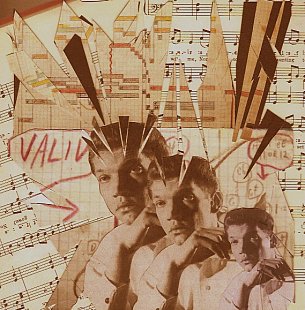
When big-band leader Stan Kenton took a left turn from the dancefloor into music for the concert halls in the late Forties he increasingly left much of his audience behind.
By aiming more for the head than the feet he was embarking on a path that had already been laid out by George Russell and Dave Brubeck, and Gunther Schuller gave it the name Third Stream Music because it belonged to neither jazz nor classical.
Kenton's orchestra – he carried 40 players at one point – was full of stars like Art Pepper, Bud Shank and Maynard Ferguson who shared his vision of a music which challenged rather than entertained. Of course when the jazz people stopped coming and the classical boffins showed little interest the times got very tough and many players lit out for more profitable pastures.
The fork in the road for everyone – players, audience, Kenton – came with a complex piece City of Glass, a four-part, three-movement thing which even today throws down the gauntlet. It sounds like the soundtrack to a film noir full of nightmare scenes designed by Dali and Hitchcock.
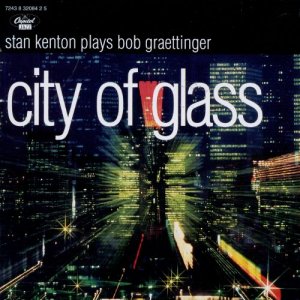 It is
undeniably avant-garde even today some 70 years later and the
crashing dissonance, weird filagrees of tunes which pop up and
disappear, and stabbing angularity put it closer to the discordant
music of Ennio Morricone, West Side Story-goes-psychotic and all
those classical composers you know you should listen but just can't
because they give you a migraine.
It is
undeniably avant-garde even today some 70 years later and the
crashing dissonance, weird filagrees of tunes which pop up and
disappear, and stabbing angularity put it closer to the discordant
music of Ennio Morricone, West Side Story-goes-psychotic and all
those classical composers you know you should listen but just can't
because they give you a migraine.
Yes, it is terrific.
It is a powerful big band going noisily nuts and many critics at the time hated it.
Not all however, even conservative Downbeat concluded that – despite its shrillness and exhaustingly problematic arrangements – that it was in places extremely exciting.
Record buyers thought otherwise and avoided it in their thousands.
But, because we have had decades of difficult music since, City of Glass doesn't seem quite the challenge it must have been for Kenton fans who just wanted him to swing out.
Well, you can't dance to City of Glass and sometimes it hits you so hard you can't even get out of your chair to flee.
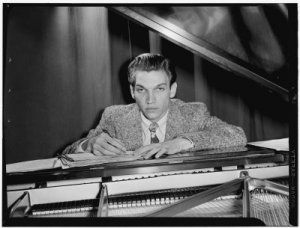 The man behind City of
Glass – and a number of other equally difficult pieces for Kenton
at the time – was the composer/arranger Robert Graettinger, a
two-metre tall alcoholic who had played alto in a number of bands
around Los Angeles but saw his calling in creating a very different
kind of sound.
The man behind City of
Glass – and a number of other equally difficult pieces for Kenton
at the time – was the composer/arranger Robert Graettinger, a
two-metre tall alcoholic who had played alto in a number of bands
around Los Angeles but saw his calling in creating a very different
kind of sound.
It would be in tone poems where the instruments would often seem at war with each other.
The first piece he offered Kenton – who embraced it enthusiastically – was Thermopylae, named for the famous battle in ancient Greece.
Aside from its stentorian tone and pugilistic saxophones, there isn't much else which cries out “ancient Greece” in its three minutes, but most might feel they have certainly been through a battle by its closing moments.
Try it for yourself.
Thermopylae
Graettinger was as odd as his music: Art Pepper described him as looking like “a living skeleton conducting, like a dead man with sunken eyes, a musical zombie” and it seems he mostly just wanted to be left alone to write in his tiny and spartan, dirty apartment where he slept on a mattress on the floor.
 His bad skin lacked any
colour, he rarely spoke with the musicians even when on the road, he
seemed to survive on booze, cigarettes, vitamins and scrambled eggs,
and he once said, “I live above the timberline where nothing
grows”.
His bad skin lacked any
colour, he rarely spoke with the musicians even when on the road, he
seemed to survive on booze, cigarettes, vitamins and scrambled eggs,
and he once said, “I live above the timberline where nothing
grows”.
While he was writing City of Glass he studied composition with the late Russ Garcia and – like Garcia – his scores were coloured lines on graph paper (see also below) on which he would write arcane notes or instructions, although he would later transcribe them into notation.
Even so, his work was astonishingly difficult for the musicians in Kenton's band: “A lot of those chords hurt your teeth,” said trombonist Bill Russo; “You were independent of the guy next to you,” said Pepper, “and if you got lost you were dead, there was no way to figure out where you were”.
And despite this, or perhaps because of it, Graettinger's music is brittle, brutal, emotional cool and tempestuous. You can't help think that with all the booze he was living inside a permanent Lost Weekend and writing his own, equally disturbing, soundtrack.
Just when his pieces sound like they might swing a little – as in some passages in City of Glass' second movement, the oddly punctuated “Dance Before” The Mirror – they descend again into explosive but exhilarating chaos.
City of Glass is, as said, not the challenge it perhaps once was, but nor is it for the faint-hearted or those who think of Kenton's swing classics like The Peanut Vendor.
Kenton's band at the time was called the Innovations in Modern Music Orchestra, but it didn't last and within a few years he reverted back to the swing style which had made his name and reputation.
Kenton would continue to explore other byways within jazz and he picked up a couple of Grammys, had his own label after he split with Capitol (for whom he recorded City of Glass and other Graettinger pieces) and when he died in '79 age 67 there were numerous tributes to his innovations and as a teacher.
Robert Graettinger didn't live long enough to create much of a legacy beyond City of Glass and half a dozen other pieces. Despite believing his parsimonious diet would ensure his longevity he was dead at 34 (lung cancer not the booze or scrambled eggs got him).
At his funeral Stan Kenton (who believed in him with unwavering loyalty even after they split up their association) and the band's arranger/producer Pete Rugolo were the only musicians in attendance.
Neither Metronome nor Downbeat ran obituaries.
.
.
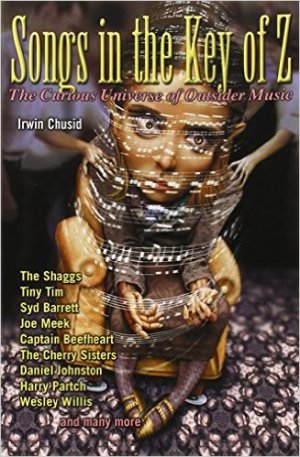 Elsewhere is indebted to
Songs in the Key of Z; The Curious Universe of Outsider Music by
Irwin Chusid in the preparation of this article.
Elsewhere is indebted to
Songs in the Key of Z; The Curious Universe of Outsider Music by
Irwin Chusid in the preparation of this article.
The compilation album City of Glass – which includes other Graettinger pieces from its sequel This Modern World – is available on Spotify and through iTunes.
Be warned however.
The Allmusic review by Richard S Ginell describes This Modern World as "the most complex, atonal, uncompromising, potentially alienating music that even the iconoclastic Stan Kenton band ever played”.
Needless to say Elsewhere considers it as essential as City of Glass.
.
For other articles in the series of strange, sad or interesting characters in music, WE NEED TO TALK ABOUT . . . go here.
.
One of Robert Graettinger's coloured scores
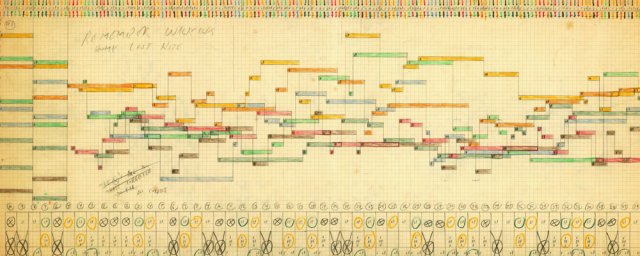

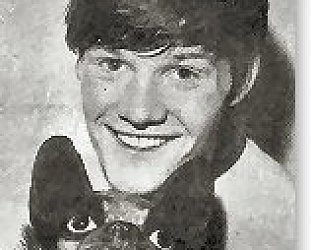


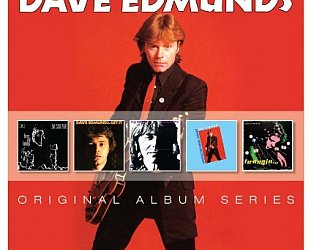
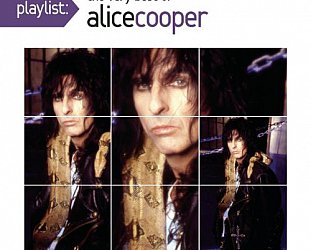
post a comment